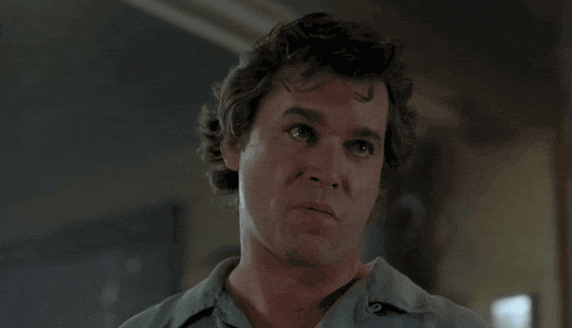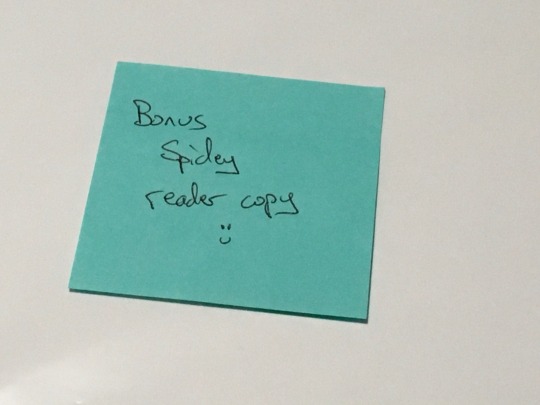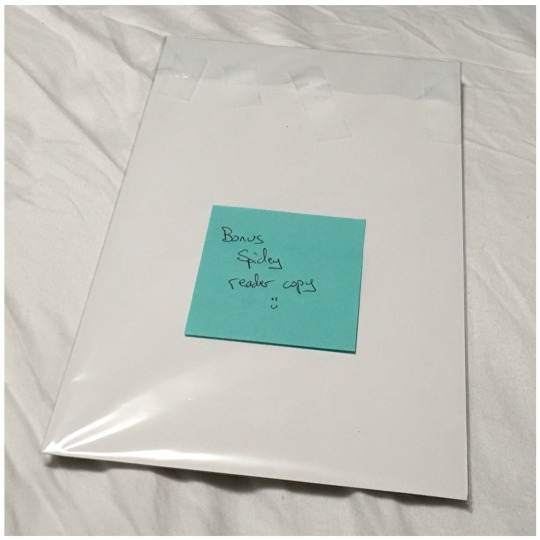#minimizing
Explore tagged Tumblr posts
Text


11 notes
·
View notes
Text
i think minimizing is a very important life skill. like yes, my anatomy grade is bad and i have to pay insurance and i am seriously torn for my plans after high school.
but, i’m in the car with a good friend, we’re getting home from school, i have minimal homework, and i’m listening to duvet by twilight and we’re getting food on the way home. life is okay, i am okay. the world isn’t going to explode, im just 17.
#vervainium#vervains tad bits#web weaving#webweaving#poetryish i think#life is okay#i am okay#i am love#minimizing#life skill
29 notes
·
View notes
Text
Things you probably didn't realize are dismissive and often times demoralizing; a non-comprehensive list:
-Chronically ill or disabled person says, "Man my body hurts, I wish I could transplant my brain into a pain-free body."
Friend responds, "I think everybody feels that way sometimes."
Uh, no bitch. I mean, yes, bitch. But also, no. The pain we are talking about is VERY fucking different.


-Chronically ill or disabled person says, "I'm so tired. I slept 12 hours and I feel like I never slept."
Friend responds, "You shouldn't be tired! Just have some caffeine and quit whining!"
Or alternatively, "I'm tired too. We're all tired."
I know you're tired. But your tired came about because you stayed up too late doom scrolling and mine is because my body hates me and chooses violence at every opportunity. It doesn't really matter how much or little I sleep because I'm in some awful place where sleep is imaginary and rest doesn't matter.

-Chronically ill or disabled person says, "I'm just feeling really defeated, you know? It's hard to lose so much of what felt like me."
Friend responds, "You've just got to be positive! It'll get better."
Ah yes, the power of positive thinking. Well, Karen/Kyle, I think you say that because my supposed bad attitude makes you uncomfortable and quite frankly I don't give a fuck about your comfort in this matter.

-Chronically ill or disabled person choosing to disclose something about their condition in order to safely interact with someone, "Just a heads up, I have this condition and it can make existing difficult in this way that pertains to you."
Coworker/acquaintance/friend says, "Oh my god, you're such an inspiration. You're so strong!"
Or alternatively, "You're just trying to get out of this thing."
OR, "Have you tried yoga? My cousin's sister's dog's nephew did yoga and it completely cured everything that's ever been wrong with him."
I'm seriously going to punch the next person who says this shit to me in the face and have no remorse. And no, they're not just trying to be encouraging. Get fucked.

#anger#ableism#dismissive#minimizing#fuck you#disability#chronic illness#chronic pain#chronic fatigue#stupid suggestions#I had a bad night at work last night and now I just want to scream so I scream into the void that is the internet#sick of being sick#toxic#toxic positivity#toxic friends
15 notes
·
View notes
Text






Loved learning a new collage making technique on Picsart.
#layouts#screenshots#collages#expanding#shrinking#minimizing#ai art cutout#background remove#hobby#habit#spider man phase#comic books#marvel comics#idw publishing#teenage mutant ninja turtles#tmnt idw#april o'neil#tmnt renet#road to 150#spiderman adventures#black suit spider man#venom#shocker#paperbag#post it note#ebay shopping#bonus comic#smiley face#thank you#gumoko
5 notes
·
View notes
Text
Democrat Party is The Party of Collective Narcissism
Recent footage from a CNN interview provides a compelling case study for the analysis of collective narcissism within group dynamics or political entities. This clip, serving as visual evidence, encapsulates the quintessential strategies that are indicative of such collective behavior. Specifically, it illustrates tactics such as changing the subject, blame-shifting, projecting, playing the victim, gaslighting, minimization, and rationalization. These strategies are emblematic of a group’s or political body’s tendency to mirror the behavioral patterns commonly associated with individual narcissistic personalities. The application of this framework to the observed interaction within the interview offers a deeper understanding of the underlying psychological mechanisms at play in collective narcissism.
Introduction
Collective narcissism is a psychological phenomenon where a group possesses an inflated self-conception, dependent on external validation and praise. Members of a collective narcissist group often exhibit selective outrage, particularly sensitive to criticism aimed at their own group while readily pointing out faults in others. For example, in the political realm, one might observe a collective narcissist group emphasizing historical racial injustices perpetrated by whites, holding white individuals or groups to rigorous standards of accountability for past and present racism, while simultaneously dismissing or downplaying the group's own racial biases or instances of discrimination. This is and has been manifesting into a one-sided narrative that all societal issues stem from historical white mistakes, often ignoring or minimizing the group's current missteps or potential for prejudices.
Democrats as Collective Narcissists
In-Group favoritism, collective narcissists exhibit extreme partiality towards their own members. It’s called identity politics and if you don’t vote instep or “identify” as such, well you’re going to have at minimum subtle forms of social control applied to you. Out-group erogation, they disparage heterosexual white folks, largely targeting the male population, who challenge their superiority through diving and showing up at their houses with borderline aggressive protests, and some actually call for acts of violence. For example the severed Trump head, by a former famed actress a few years ago.
They act with aggression in response to threatened ego, they react defensively, sometimes aggressively, when their group's prestige is questioned. Then there is this denial of reality and facts, they frequently deny or distort facts that do not align with their self-image. They seek constant admiration and affirmation for their “social justice” activism and beliefs. They crave and actively seek affirmation of their group's perceived grandeur.
Changing The Subject
The first strategy used is changing the subject, it is a common deflection technique to avoid uncomfortable topics. Holder reimagines a scenario in the conversation where the Republican Party acts like the Democratic Party's and instead of Democrats asking AG’s to investigate Trump. In this reimagined of what is really happening to Trump. Democrats are now the victims, these actions serve entirely different, purpose. It distracts the audience from reality of what is actually happening to Trump. Avoids highlighting their policy and related issue with the Trump administration.
Blame Shifting
Holder then blame shifts, after he re-imagines a real life political scenario where Democrats are weaponizing the Justice system and doing everything they imagined in this real life scenario to Trump. Instead Trump is doing it to them. The blame shift is so subtle and clever, but serves his agenda to shift blame away from any personal or Democrat party's past misdeeds, suggesting that it is actually the other party (in this case, President Trump and his administration) that is engaging in corruption. This blame-shifting moves the spotlight from his own actions or those of his political affiliates to the opposing side.
Projection
Holder may then project, accusing the Trump administration of engaging in the very behaviors for which he or his party are being criticized. This projection serves to muddy the waters, casting aspersions on the opposition while deflecting from his or his party's actions. Holder reimagined a scenario where democrats are not only victims, and saviors of Democracy but everything is actually happening to Trump now, is now being reimagined and projected on to the oppositional party as happening to them. This evident when Holder explains the relational scenario where high ranking officials ask a “compliant” AG or DOJ to investigate people they don’t like. This is exactly what happen to Trump.
Playing Victim
Which brings me to the next strategy, playing the victim. The interview on CNN (2023) demonstrates a classic instance of collective narcissism, where the interviewed party employs tactics such as changing the subject, blame-shifting but now plays the role of the victim, reflective of the patterns observed in groups with narcissistic tendencies. To Holder, the Democratic Party is the “real victim” here. This evidenced by Holder imagining the Democratic Party positioning themselves as unfairly targeted by Trump's camp, suggesting that they are the ones suffering under false accusations or partisan attacks. Nothing of real world evidence is being suggested as happening. For example, what is happening to Trump, now, like the law-fare, the lack of evidence to support two Trump impeachments, the Russian collusion of which the FBI agents involved in those investigations were convicted of actual wrongdoing, meaning the agents themselves who were in charge with investigating Trump, were actually the ones colluding with Russian Oligarchs.
Gaslighting
With a subtle display of gaslighting, Holder manipulates viewers by casting doubt on the integrity and intentions of the Trump administration, subtly diverting attention from concrete evidence of their actions towards President Trump. Former Attorney General Eric Holder commented on the issue, "Hunter Biden charges wouldn't have been brought in normal scenario" (CNN, 2023, 00:15). Before the blame shift, projection and playing victim, there was the truth. He’s correct these are not “normal times”, everything happening Trump now, is unprecedented. No one has used law-fare, to prevent an opponent from running for office. Why wouldn’t that rising political opponent not seek accountability? He reframes the discourse, suggesting that such criticisms are nothing more than partisan tactics aimed at discrediting the Democratic Party. This strategic narrative shift paints the Democrats as casualties of an "unjust" electoral process, besieged by authoritarian figures, rather than confronting the reality of the situation. The truth, as Holder veils it, is obscured by a narrative that avoids acknowledging the Trump administration's legitimate efforts to enforce accountability. This includes the invocation of program F and the dismissal of individuals who are excessively aligned with a regime characterized by pronounced collective narcissism. In essence, Holder is redirecting the conversation, insinuating that the push for accountability is an act of political aggression rather than a response to actual mismanagement or malfeasance.
Minimization
Which brings me to my third symptom, minimization. Minimization is evidenced when holder downplays the significance of any wrongdoing that he or his party might be accused of, which leaves the audience to assume that what he and the Democratic Party do are minor issues compared to the alleged corruption, and “authoritarianism”, within the Trump administration. When confronted with the notion of President Trump's reelection and the hypothetical appointment of a corrupt Attorney General, a figure like Eric Holder deflects the criticism by attributing the very issues present in the current administration to the hypothetical future one. This deflection serves as a mirror, reflecting the accusations back onto the accuser, a common tactic seen in political discourse.
Rationalization
Holder might conclude his defense with rationalizations, portraying any controversial actions from his term as unavoidable necessities dictated by the political environment. He asserts that these actions were the lesser evil compared to what he predicts would be the far more detrimental consequences of President Trump's potential appointees. Within this justification narrative, Democrats are depicted as the unwavering defenders of democracy. Conversely, Trump is labeled a racist, an accusation Holder presents as a clear-cut example of collective narcissism, implying that such a flaw could never exist within the Democratic ranks. This is underpinned by a mythology that claims people of color cannot be racist as they lack the systemic power to enforce such racism, a belief that shifts focus from individual prejudice to systemic injustice.
In this context, rationalization takes a more extreme form: the assertion that the Democrats must "save America from its voters." This is done through legal maneuvers and any means deemed necessary, painting the party as protectors in a dire situation. Such narratives echo classic Marxist ideology, which Holder suggests is also evident in the actions of the Chinese Communist Party. Both are seen as authoritarian entities that argue their overreach is in service of protecting the working class, the proletariat, from the resurgence of the bourgeoisie's dominance. In Holder's discourse, the collective narcissism of the Democratic Party is framed not as self-interest, but as a noble struggle to uphold the greater good against prevailing class enemies.
Conclusion
By deploying these tactics, Holder would be engaging in a form of collective narcissism on behalf of his political affiliation, effectively defending the group's image by deflection rather than by direct refutation of the claims presented. In this charged exchange, a CNN posed with a question regarding the impact of President Trump's reelection and his choice of a potentially corrupt Attorney General, someone like Eric Holder, with his contentious history, might instinctively employ collective narcissistic deflection tactics. This form of deflection would involve shifting scrutiny from his own past actions to the hypothetical scenario, thus avoiding direct confrontation with any personal allegations of corruption. By mirroring the current criticism onto the future possibility, Holder could artfully navigate the conversation, effectively accusing the opposing side of the very transgressions being discussed. This method subtly shifts the focus from his own controversies to those of President Trump, implying a "they do it too" narrative.
This maneuver is designed to sidestep direct accountability and instead redirects the conversation toward a critique of Trump's potential decisions, thus maintaining a strategic defensive stance. The suggestion here is that the hypothetical corruption of a future Trump-appointed AG is not only possible but is, in fact, a reflection of the current state of affairs — a tactic that serves to normalize and diminish the gravity of Holder's own past actions by comparison. Holder could respond with a variety of strategies typical of narcissistic deflection but tailored to a collective or political narrative: blame-shifting to other political figures or entities, projecting the administration's faults onto its adversaries, gaslighting the public into questioning the veracity of any criticism aimed at them, and rationalizing any questionable actions as necessary or misinterpreted.
References:
Golec de Zavala, A., Cichocka, A., Eidelson, R., & Jayawickreme, N. (2009). Collective narcissism and its social consequences. Journal of Personality and Social Psychology, 97(6), 1074-1096. https://doi.org/10.1037/a0016904
Golec de Zavala, A., Peker, M., Guerra, R., & Baran, T. (2016). Collective narcissism predicts hypersensitivity to in-group insult and direct and indirect retaliatory intergroup hostility. European Journal of Personality, 30 (6), 532-551. https://doi.org/10.1002/per.2067
Marchlewska, M., Cichocka, A., & Kossowska, M. (2018). Addicted to praise: The role of positive feedback in collective narcissism's link with intergroup hostility. Journal of Personality and Social Psychology, 114(3), 374-393. https://doi.org/10.1037/pspi0000117
CNN. (2023, December 8th). Eric Holder: Hunter Biden charges wouldn't have been brought in normal scenario [Video]. CNN Politics. https://edition.cnn.com/videos/politics/2023/12/08/hunter-biden-eric-holder-reaction-sot-lcl-vpx.cnn
#lawfare#projecting#gaslighting#minimizing#blame shifting#deflection#collective narcissism#democrats#rationalization#playing victim#changing the subject
3 notes
·
View notes
Text
I love personalization. I love stickers on water bottles and on laptops. I love shitty marker drawing on the toes of converse. I love hand embroidered doodles on jeans. I love posters on walls. I love knick knacks on shelves. I love jewelry with goofy charms. I love when people take things and make them theirs.
99K notes
·
View notes
Text
Do not quit alcohol cold turkey
Do not suddenly stop drinking alcohol as a new years resolution if you have been consistently using alcohol most days
Your body gets used to the presence of the alcohol as a sedative in your system
Suddenly removing the sedative you are chemically accustomed to is like suddenly removing the wall you are leaning on - you will topple over
You brain electricity gets overexcited
This causes seizures
This causes sudden onset dementia (Wernicke's encephalopathy)
This causes brain damage
If you use alcohol often (even in moderate amounts)
Or in large amounts
Or you have ever noticed you get shakey tremors and anxious when you stop drinking
Then your body is chemically dependant and you need to be very careful coming off alcohol otherwise you will cause brain damage
Slowly wean down the amount you drink over days or weeks
Talk to a doctor about your goals to quit and ask about support options
Medically supported withdrawal is a lot safer
If alcohol withdrawal goes badly there is a 15% chance it will kill you.
Do not go this alone
You deserve to be safe
19K notes
·
View notes
Text

Instability
Signaling
(😡😠🤬😫👿versus😇😃🤣🤪🥰)
Either it's too little too late: (doing the minimal and having no intent at all to help you or anyone else if it isn't for themselves).
Or
Too much too soon: (doing the most and immediately seeming grandiose and righteous in the short term for personal gain).
Or
It's not the right time: (whenever you bring up a topic that points to their sensibilities, it's all of a sudden inconvenient to their fragile ego), so they gatekeep information that would have been beneficial, even for both parties.
Or
It's complicated : (they haven't developed the emotional intellect to articulate their inner dialogue replete with their pain, suffering, anguish, childhood wounds, and even their joy and contentment, while remaining objective), so they deceive, flipflop, avoid, deflect and project.
And lastly,
Showing no interest and intent at all of accountability throughout any and all interactions, but instead blaming everyone else ... victimizing all others while claiming to be a victim. No signs of commitment to growth and development. None.
Signals like these are just a few ways to identify instability in others. Proceed at your own risk.
C.
#no accountability#mentally unstable#mental instability#emotional instability#too much too soon#too little too late#flip flopping#oh no bro#nah bro#expressionism#opinionated#observations#for real#its complicated#deflection#gatekeeper#avoidant personality disorder#personal growth and development#growth and development#doing the most#minimizing#psa#triggering themes#watch out#proceed with caution#the situation#character traits#radioactive#toxic people#victim mentality
0 notes
Text
Best & Worst Foods For Minimizing Springtime Allergies – BoKU® Superfood
For much of the country, this is the time of year when we are especially in awe of nature. After spending much of the last season indoors (especially in 2020-2021 for obvious reasons), spring-blooming flowers represents our ticket back to sanity, a light at the end of the very long, dark tunnel. But this time of year is a bane to existence for those who experience springtime symptoms. Pollen…

View On WordPress
0 notes
Photo

"Reading Sign" (2010s) ◈ Paper meets power lines in white silhouette
13K notes
·
View notes
Text






neyofilm
6K notes
·
View notes
Text
What if Pomni seeks out comfort from Kinger bc of the last episode?? Finale !!

It is DONE !!
Everyone is so fun to draw I cannot.......... /pos
#the amazing digital circus#tadc#pomni#tadc pomni#kinger#tadc kinger#caine#tadc caine#jax#tadc jax#zooble#tadc zooble#gangle#tadc gangle#ragatha#tadc ragatha#so proud of how this comic came out it looks more like a comic i would make#my old wh one is nice but it looks too desaturated and messy#I love neon colours.....#and minimal shading and halftone......#but now this is done i can finally work on an au i have ideas for#spoilers but prepare for..... tank kinger..... big kinger.........#and girl dad and daughter...... and old man yaoi.......
14K notes
·
View notes
Text
Strategies for Minimizing Employee Turnover in the Trucking Industry
At Immense Trucking Solutions Ltd, we understand that employee turnover can significantly impact the efficiency and profitability of trucking operations. To foster a stable workforce and enhance driver retention, we have implemented several effective strategies tailored to the unique challenges of the trucking industry.

Competitive Compensation and Benefits
One of the most critical factors influencing employee retention in trucking is compensation. To attract and retain top of offer competitive pay that aligns with market rates. Regularly reviewing and adjusting compensation models ensures our drivers feel valued for their hard work. Additionally, providing comprehensive benefits, such as health insurance, retirement plans, and performance bonuses, can enhance job satisfaction and loyalty among our employees. 2. Flexible Work Schedules
Flexibility in work schedules can significantly improve employee morale and reduce turnover. Immense Trucking Solutions Ltd recognizes that our drivers have personal lives and commitments outside work. By offering flexible scheduling options and respecting their time off, we create a supportive work environment that encourages long-term commitment. This approach not only helps in retaining drivers but also enhances their overall job satisfaction. 3. Invest in Training and Development
Providing extensive training and development opportunities is crucial for retaining employees in the trucking industry. At Immense Trucking Solutions Ltd, we prioritize the professional growth of our drivers by offering ongoing training programs that enhance their skills and knowledge. This investment improves safety and efficiency and demonstrates our commitment to their career advancement, fostering loyalty and reducing turnover. 4. Foster a Positive Work Environment
Creating a positive and inclusive work culture is essential for minimizing turnover. We actively promote open communication and encourage feedback from our drivers. Additionally, recognizing and celebrating their achievements fosters a sense of belonging and motivates them to stay with the company. 5. Optimize Routes for Work-Life Balance
Long hours on the road can lead to burnout and dissatisfaction among drivers. To combat this, we focus on routes to ensure reasonable work hours and minimize time spent away from home. By balancing work demands with personal life, we help our drivers maintain a healthier work-life balance, which is crucial for long-term retention. 6. Build a Strong Community
At Immense Trucking Solutions Ltd, we believe in fostering community among our drivers. Organizing team-building activities, social events, and regular meetings helps strengthen relationships and build camaraderie. When drivers feel connected to their colleagues and the company, they remain loyal and committed to their roles.
Conclusion
Minimizing employee turnover in the trucking industry requires a multifaceted approach to the unique needs and challenges. We are dedicated to implementing strategies that enhance job satisfaction, promote professional growth, and foster a positive work environment. By prioritizing our drivers’ well-being and creating a supportive culture, we can reduce turnover and build the committed workforce that drives our success in the trucking industry.
#Strong Community#immense trucking solutions ltd#trucking solutions#trucking industry#trucking company#sustainability#communication tools#Work Environment#Minimizing#Development#employee
0 notes
Text

Find more inspiration and follow us
📸 Instagram: saintmarcny

7K notes
·
View notes
Text
if you donate one single us dollar to the unrwa, you will have donated more money than you would have by clicking that stupid arab.orb link every day for four and a half years. yes, they do actually donate money to the unrwa, but even with tens of thousands of clicks, most of that money is the baseline $90 they send every quarter. from 2023 quarter 4, half a million clicks turned into $380.57. maths out to six hundreths of one cent per click. just donate to unrwa.
#myaa#everyones pushing so hard for the clicks and like#its nice you think you can make a difference by clicking#but you should understand how minimal the impact of that site is#i can understand if you literally cannot donate#but its frustrating to see ppl reposting the click link so many times without the link to ACTUALLY donate...
29K notes
·
View notes